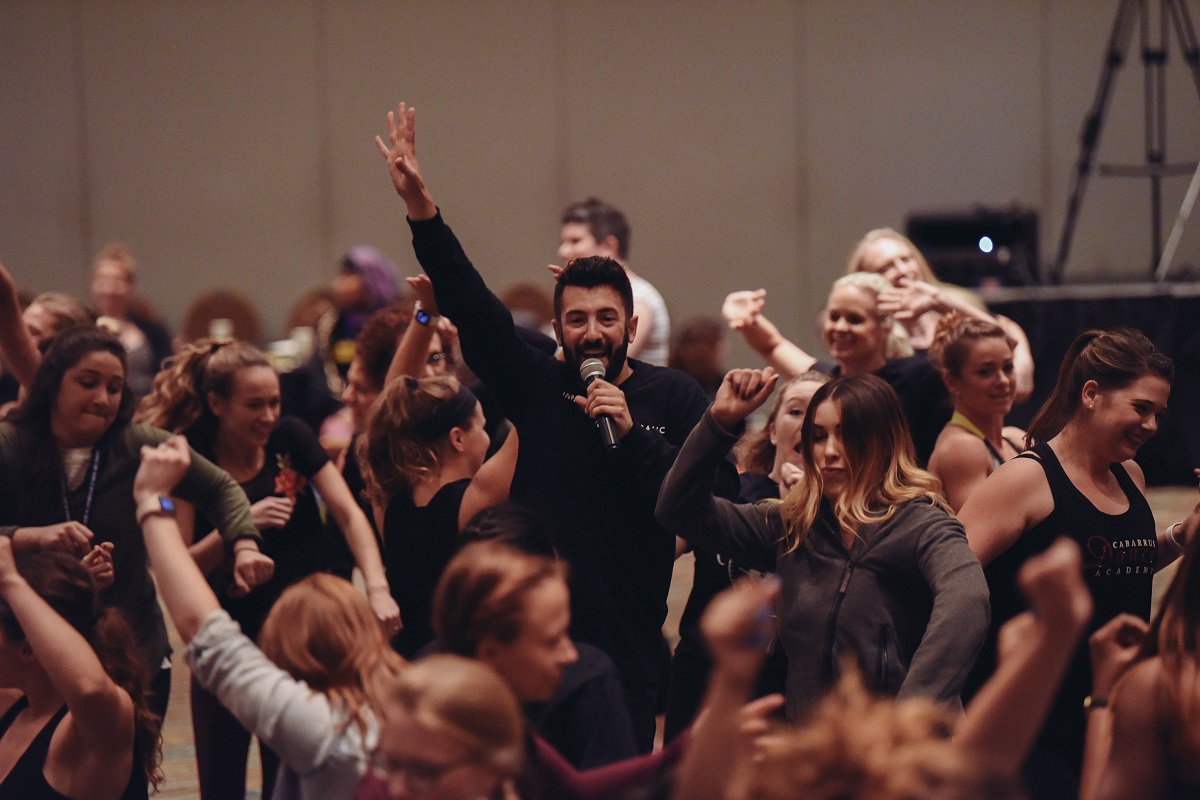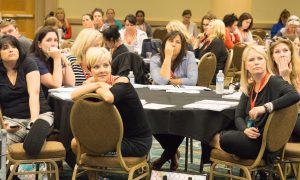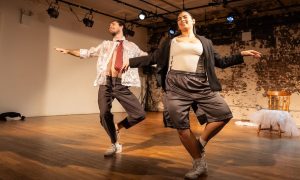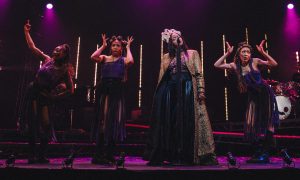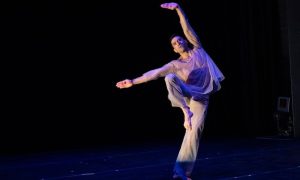As dancers chassé toward their senior year of school, they begin to decide where dance will take them. Where will they take that next step, or leap, to make their dance dreams a reality? There are so many options across college dance, the commercial scene and company work. Will they audition for a feeder school in hopes to join a concert dance company, will they get an agent and seek commercial work, or will they dive headfirst into academic study at a leading college?
Traditionally, there has been a disparity between concert, commercial and collegiate dance careers, and young students can feel that their choice now may limit their career choices in the future or box them in. But is this changing? And how can you help your students to navigate the gap between these three very distinct dance worlds?
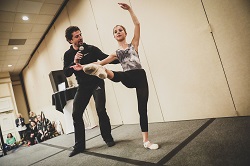
Martin Harvey at Dance Teacher Summit
Martin Harvey, former principal with The Royal Ballet, who is also an actor and Broadway performer, says, “On the surface, there is definitely a gap. However, underneath, we’re all going for the same thing.”
Commercial dancer Teddy Forance, who hails from a competition dance background, shares the same sentiment, saying, “I think there is still a gap, but it’s definitely closing more and more. I think University of Southern California was massive for the dance world to see. This college is built upon showing different ideas and concepts. You’ve got Forsythe, but then you also have commercial people coming in and teaching.”
Emmy-nominated choreographer Al Blackstone also feels like the gap is “absolutely closing”, adding, “I feel like I thrive in that gap! I enjoy adapting to the kind of audience that my work will have and figuring out how to connect with them most effectively. I try not to worry about which areas of the industry I fit into because ultimately, it’s all dancing, and that is the language that I feel most comfortable speaking.”
Harvey, Blackstone and Forance have all very successfully navigated that gap, enjoying exciting, varied and ever-evolving careers in many areas of the dance industry.
Forance speaks fondly of his recent work in the concert dance sphere with Hubbard Street Dance in Chicago. “It was really cool that they opened up the doors, were so generous and so kind, and really enjoyed my work. It was a really interesting collaboration.”
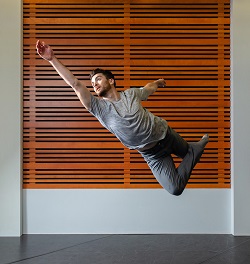
Teddy Forance. Photo by Katie Goughan.
Blackstone, who seems to jeté effortlessly across many spectrums of dance, is excited about the merging of different dance worlds, sharing that “dancers now have more access to information and training than ever before, and it means that dancers are able to be more versatile than ever. In New York, there are company dancers dancing on Broadway and ballet dancers doing music videos! Different communities are feeding off one another in order to evolve, and it means that the lines are increasingly being blurred.”
With these lines blurred, how can dance educators equip their students to bridge the gap so they, too, can achieve successful and fulfilling careers in any area, or multiple areas, of the industry?
Harvey tells educators to “encourage open-mindedness and provide/lobby for diverse and balanced training at their studios.”
Forance shares practical advice saying, “I think it’s about being informed. Map out on paper all the different options for colleges and the choices you can make. There are so many different things to research out there — for example, Arts Umbrella in Canada, has a way to do a year training program without an academic program.”
He adds, “Give them all the tools you can, and really be knowledgeable yourself across not only the competition convention scene but also the collegiate level, companies, what’s happening in LA. Talk about getting an agent and the process for that. I think there are so many things that go in to preparing someone to be a professional dancer, more than just how to move!”
Blackstone adds an emphasis on broad training. “I think that solid training and encouraging our students to have an open mind will always be the key to versatility. If we can encourage our dancers to be curious and try new things, then they will have a better chance of branching out in to different areas of the industry.”
Forance agrees. “It’s about being someone in the room who is just agile with anything that comes at them — words, or movement or energy,” he says.
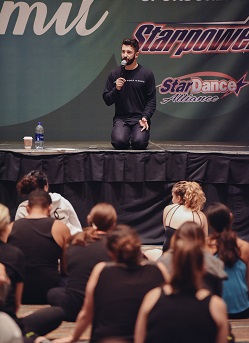
Al Blackstone at Dance Teacher Summit
“Hold your students accountable,” stresses Blackstone. “As a convention teacher, I see kids skipping classes all the time because they ‘don’t like’ or ‘don’t do’ that style. It breaks my heart because they are so young and already boxing themselves in and setting limits on what they think they are capable of!”
In addition, “Ask the students to invest in finding out who they really are,” digs Harvey. “Spend a little less time on ‘what’ is happening and more on ‘why’ and ‘how’ it’s happening. Suggest that the students might start thinking as if they were a director or a choreographer.”
Blackstone, who will be teaching at this summer’s Dance Teacher Summit (DTS) aims to help educators have these discussions so they can assist students to best navigate the industry. “Dance Teacher Summit connects the people who are responsible for fostering the next generation of dancers in this country. We come together to share ideas, try new things, have conversations and dance together. Regardless of what part of the industry we inhabit, it is the kind of place where you immediately realize how connected we really are.”
With leading educators and professional dancers and choreographers from across the commercial, concert and collage scenes speaking and instructing, DTS brings these worlds together in one place.
Harvey says, “I think DTS does a marvelous job of making an energetic fact into a tangible reality. We are all connected, and we do all care, so bringing us together to help further sculpt ourselves can only be good news for the future.”
And as Forance stresses, it’s all about being “informed”. We can’t all know everything happening in the industry, but when we come together, we can learn, grow and, very importantly, be re-inspired for the new teaching year.
“You’ve got to fill your cup back up before you let people drink from your inspiration,” says Forance.
Join Harvey, Forance and Blackstone at Dance Teacher Summit this July and August. For more information, visit www.danceteachersummit.com.
By Deborah Searle of Dance Informa.


